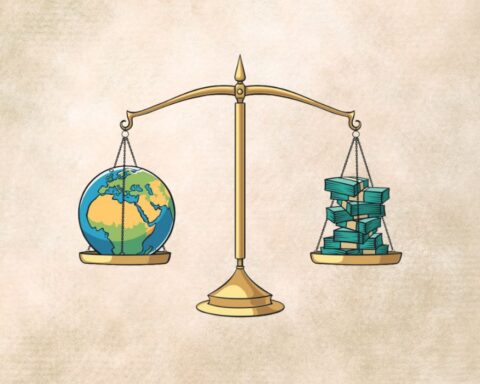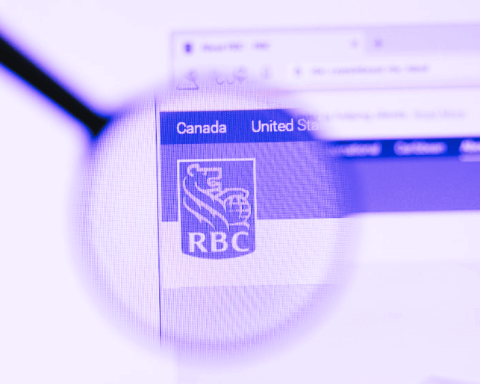Pandemic Portfolio is a series from Corporate Knights and the Toronto Star that looks at companies and funds relatively well-positioned to weather the economic storm triggered by COVID-19.
The COVID-19 pandemic is pushing every industry into the future, and the investment industry is no exception. Canadian investors are increasingly embracing the shift away from more expensive mutual funds and into lower-cost exchange-traded funds (ETFs). According to a report from the Investment Funds Institute of Canada, more than $18 billion has flowed into ETFs so far in 2020, compared to only $4 billion into mutual funds. As the stock market crashed and recovered in March, ETF investors stayed the course by investing $3 billion, while mutual fund investors panicked and sold more than $14 billion.
A big part of the growth in ETF assets has come from so-called robo advisors like Wealthsimple, which automate the process and make it very easy for people to start investing in ETFs. These robo advisors have only increased in popularity during the pandemic: Wealthsimple, for example, saw twice as many sign-ups in March of this year compared to March of last year. Not every robo advisor offers a socially responsible portfolio, but for those that do, approximately one third of new investors opt in. Up until now, most of the offerings were similar and offered a very loose definition of “socially responsible,” so I’m very happy to see Wealthsimple raising the bar.
I wasn’t impressed when Wealthsimple launched its first socially responsible portfolio in March 2016. The portfolio consisted of a mishmash of exchange-traded funds (ETFs), all with different and often conflicting definitions of social responsibility. Wealthsimple itself admits that the original methodology left a lot to be desired. Thankfully, the company updated the portfolio in June by launching its own socially responsible ETFs, with lower management fees and a unique methodology.
With more than $5 billion of assets under management, it’s worth examining Wealthsimple’s new socially responsible portfolio to see whether it really lets people “invest in a better world” – or is just clever marketing. Wealthsimple’s updated socially responsible portfolio is chiefly made up of two new ETFs: the Wealthsimple North America Socially Responsible ETF (ticker: WSRI) that includes Canadian and U.S. companies, and the Wealthsimple Developed Markets ex-NA Socially Responsible ETF (ticker: WSRD) that includes companies from Europe, Japan and Australia. Both ETFs trade on the Toronto Stock Exchange and use the same screening methodology to determine which companies are allowed in. WSRI charges an annual management fee of 0.2%, while WSRD costs 0.25%.
Contrary to some of the ETFs in Wealthsimple’s old socially responsible portfolio, the new ETFs explicitly exclude weapons manufacturing, defence contracting, tobacco, alcohol, adult entertainment and any company found to be in violation of the UN Global Compact (principles covering human rights, child labour and corruption). The new funds also exclude companies related to oil, gas and coal, making them fossil-fuel free. Additionally, the top 25% of carbon emitters in each industry are scrapped, as are companies with fewer than three women or less than 25% female representation on their boards of directors. According to a 2019 report from Osler, a leading business law firm, just 39% of TSX-listed companies have more than one female director on their board. That means Wealthsimple’s gender screen excludes roughly 60% of Canadian stocks.
Even with all those screens, Wealthsimple’s new ETFs still include a number of companies that would raise eyebrows among many ethical investors. Its North American ETF includes Amazon, which is being sued by Canadian delivery drivers claiming unfair treatment, and Facebook, which is facing a growing boycott from advertisers unhappy with the social media’s hands-off approach to hate speech.
The fundamental problem with the “one-size fits all” approach to ethical investing that robo advisors and funds offer is that the methodology never goes far enough for some investors – and goes way too far for others. Wealthsimple has stated that the new funds will continue to improve and evolve, so we could see something like a racial equality screen introduced (pretty please). But there are currently only 233 companies in both ETFs combined, and I would expect additional ethical screens to keep reducing diversification.
Does the new portfolio, as advertised, let people “invest in a better world”? Well, not quite. It does a good job of excluding problematic companies, and it does include a handful of stalwarts on Corporate Knights’ list of the Global 100 Most Sustainable Corporations in the World, including McCormick. But the portfolio has lacklustre exposure to companies whose main business is providing sustainable solutions such as renewable energy, electric cars, green buildings and energy efficiency – all themes that are outperforming with good long-term growth prospects. For example, in the Wealthsimple Developed Markets ex-NA Socially Responsible ETF (WSRD) fund, just 20% of the companies have a significant line of green or sustainable products or services, according to the Corporate Knights Green Flag Database.
For the time being, investors who want to invest in sustainable solutions will need to incorporate additional products like green ETFs or community bonds if they want their investment to have a positive impact.
Tim Nash blogs as The Sustainable Economist and is the founder of Good Investing. This article was provided by Corporate Knights magazine.







